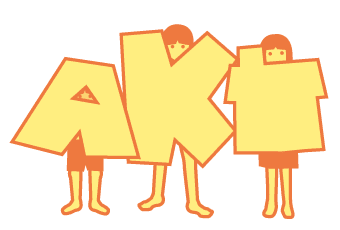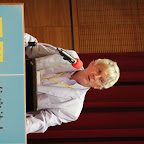Category
- Family with elders
- Family with teenager members
- Single-parent family
- Family with handicapped members
- Family with more than four members
- The live-alone
- Aborigine family
- Family with foreign spouse
- New immigrant
- Multi-culture family
- Nuclear family
Common Issue
House Space
- Insufficient living space
- Lack of the space for cloth sun-drying. Refuse to use the public space with concerns of cloth thievery.
- Covered courtyard causes bad ventilation and the lack of privacy.
- Insufficient store space.
- Appliance maintenance needs.
Single Building
- The staircases and sidewalks are piled up with messes.
- The arcades and vestibules are lack of effective management and sufficient width. ( There is no room for two scooters to pass over. Families who live at ground floor are exposed to scooter waste gas and noises.)
- Thieves can break into the building by the courtyard or widows.
- Courtyard ventilation and waste problems.
- Worn pipelines.
- The top floor has become a blind corner of public security.
- Empty house occupation
Community Public Space and Facilities
- Insufficient lighting at night that raises safety concerns.
- Part of the public space is occupied by specific groups, which keeps other residents away from using the space.
- Insufficient space for social activities.
- Library space is not divided into separate zones for different functions.
- Waste problems.
- Public facilities and cars/scooters has been damaged on purpose.
Space that is Connected with Outside-Community Space
- Cars that come from outside of the community has occupied the community’s parking space. Non-community-residents can not be identified when entering the community, which increases the security concerns.
- Defective facilities of Mucha park lowers the use intentions of the residents.
- Youngsters and adults use short-distance vehicle(scooter), and the elders and children are relied on public transportations.
The Relationship between the Inside of the Community and the Outside
- Lack of community identification make public affair participation and the sense of responsibility for environment maintenance hard to further developed.
- Suspects and discrimination to members from other community.
- Their social relationship is limited to those who has similar backgrounds.
- The communication with relatives outside of community is rare. And the community name will not be mentioned if not being asked, which is caused by the fear of being discriminated.
Software Support
- Insufficient job-fair related activities
- Social workers usually take the disadvantaged as priority, which make the normal families think they are being neglected. Households are suspicious about the distribution difference of welfare resources, which makes the households distrust in social workers.
- Unstable job status, and low incomes bring poverty.
Difficulties and Needs of Different Families
Special Problems and Needs from Different Types of Families
Multi-Culture Familty
New Immigrant family.
- 1. In need of schoolwork assistance.
- Can only look for low-paid jobs.
- High intention in taking oversea family members to settle down in Taiwan.
- Aborigines
- In need of family-gathering-space based on their religion and aboriginal culture.
- Common Issues
- Discriminations from outside of the community. Closed social network.
- Most of them has 2-3 children, which brings higher requirement for room numbers.
Families with Teenagers
- Nuclear Family
- With the concern in the complexity of the community members, the parents strictly limit their children in contact with the community.
- Single-Parent Family
- They choose to live in An-Kang community to save the rent in order to provide their children with better education. But their children are affected by peers in the community because their parents has little time to spend together with them for work reasons.
- Expectation of living with other single-parent family to take care with each other.
- Common Issues
- Two-room house is not sufficient to separate children with different sex.
- In need of qualified schoolwork assistance, talent classes, and recreation activities.
- Lack of recreational area and public facilities that can satisfy the needs of the parents.
- Their children are easily discriminated in school by teachers and their classmates.
Mentally Handicapped
- Mentally Handicapped:
- They are easy to be rebelled by neighbors for noise-generation and waste-dumping problems.
- In need of day time and temporary caring institutions.
- Physically Handicapped :
- Lack of accessible facilities in house.
- Insufficient accessible facility that cost family members more time and effort to arrive their destination.
- Accessible facilities require effective management and maintenance.
- Mutual-help relationship developed by people with same condition.
- Common Issues
- Lack of working members.
Families with elders
- Not Live Along
- In need of day time or temporary spaces which is safe and with cares.
- Live Along
- Meal delivery and help of buy daily supplies.
- 協同就醫
- Conflicts are easy to be raised when live with unfamiliar people with different life habits.
- In need of social activities that is designed for live-along elders.
- Future health Care
- Common Issues
- Stair armrests and anti-skid facilities.
- t is inconvenient without elevator.
Future Advices
- Affordable rent for the original households.
- Simplify the qualification evaluation and notarization procedure.
- Divide the library and sport field into different zones according to different needs of ages.
- Vocational training program and job-match platform.
- Build restaurants, maintenance stores, social care and childcare facilities, which, in the mean time, can provide job opportunities.
- Schoolwork assistance service.
- Clear and unified bulletin system.
- Hesitations for building a public cloth-sun-drying space.
- Mixed residence is acceptable. But there are worries of being not accepted by non-low-income households. Nondisclosure of their low-income identification is required.





0 意見:
張貼留言